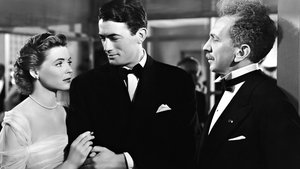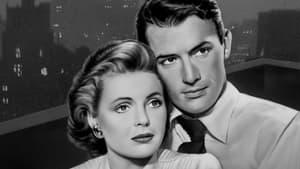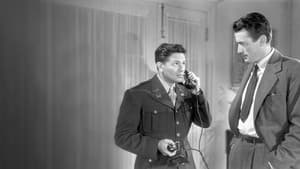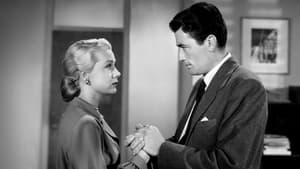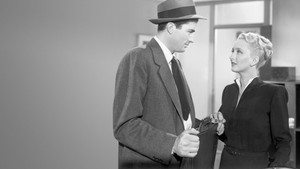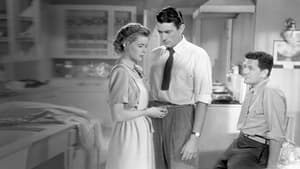Contact: info@alwanfilm.com
Video Sources 0 Views
- Watch trailer
- Gentleman's Agreement

Synopsis
Table of Contents
ToggleReview: Gentleman’s Agreement 1947 Colorized – A Poignant Exploration of Prejudice and Privilege
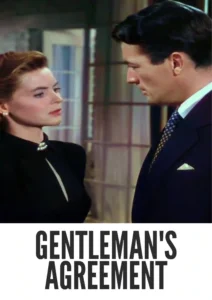
Introduction
Gentleman’s Agreement, released in 1947, stands as a groundbreaking film that courageously confronts the pervasive issue of anti-Semitism in post-war America. Directed by Elia Kazan and starring Gregory Peck, this powerful drama remains as relevant today as it was upon its initial release. In this review, we delve into the profound impact of Gentleman’s Agreement and its enduring relevance in the fight against discrimination and prejudice.
Check The Full Colorized Movies List
Check Our Colorized Movies Trailer Channel
Understanding Gentleman’s Agreement 1947 Colorized: Director, Cast, and Genre
Directed by Elia Kazan, Gentleman’s Agreement features a stellar cast led by Gregory Peck, Dorothy McGuire, and John Garfield. The film falls into the drama genre, but its exploration of social issues elevates it to a thought-provoking work of art.
Exploring the World of Gentleman’s Agreement 1947 Colorized: Plot and Characters
Gentleman’s Agreement follows the story of journalist Philip Schuyler Green, who poses as a Jew to expose the rampant anti-Semitism that pervades American society. As he delves deeper into his investigation, Philip confronts his own prejudices and grapples with the moral implications of his deception. Along the way, he forms a deep connection with Kathy Lacey, a divorcee who challenges his assumptions about love, loyalty, and identity.
The Art of Film Colorization
While Gentleman’s Agreement was originally filmed in black and white, its early colorized version adds a new layer of depth to its nuanced performances and thought-provoking themes. The colorization process enhances the film’s emotional impact and captures the complexity of its characters with striking clarity.
Early Colored Films: A Brief History
The history of early colored films is marked by innovation and experimentation as filmmakers sought to enhance the visual appeal of their movies. From hand-tinted frames to pioneering technicolor processes, the evolution of colorization techniques transformed the cinematic landscape, offering audiences a new way to experience the beauty and complexity of human emotion.
Gentleman’s Agreement (1947) and Its Early Colored Version
The decision to release Gentleman’s Agreement in a colorized format was made with the intention of immersing audiences in the emotional depth of its performances and enhancing the film’s visual impact. While some purists may prefer the original black and white version, the early colorized edition of Gentleman’s Agreement adds a new layer of depth to its nuanced exploration of prejudice and privilege.
The Debate Over Film Colorization
The debate over film colorization continues to divide audiences and industry professionals alike. While some argue that colorization breathes new life into classic films and makes them more accessible to modern audiences, others maintain that it compromises the artistic integrity of the original work. As technology advances and filmmaking techniques evolve, the debate over colorization remains a topic of ongoing discussion within the film community.
Examining Gentleman’s Agreement (1947) as an Early Colored Film
Viewing Gentleman’s Agreement in its early colorized iteration offers audiences a fresh perspective on its nuanced performances and thought-provoking themes. The colorization process enhances the film’s emotional impact and captures the complexity of its characters with breathtaking clarity. As viewers are drawn into Philip’s journey of self-discovery, they are treated to a visual feast that immerses them in the timeless struggle against prejudice and discrimination.
Influence and Legacy: Gentleman’s Agreement 1947 Colorized’s Impact on Cinema
Gentleman’s Agreement is widely regarded as a groundbreaking work that challenged the status quo and paved the way for a more inclusive and socially conscious cinema. Its unflinching portrayal of anti-Semitism sparked a national conversation and helped to raise awareness of the insidious nature of prejudice and privilege. The film’s enduring relevance in today’s society serves as a reminder of the importance of empathy, understanding, and standing up against injustice.
Director’s Cinematic Legacy: Beyond Gentleman’s Agreement 1947 Colorized
Elia Kazan’s directorial legacy extends far beyond Gentleman’s Agreement, encompassing a diverse body of work that includes acclaimed films such as On the Waterfront and A Streetcar Named Desire. As one of the most influential filmmakers of his generation, Kazan was known for his ability to tackle complex social issues with sensitivity and nuance. Gentleman’s Agreement stands as a testament to his talent and courage, solidifying his reputation as one of the great auteurs of classic Hollywood cinema.
Themes Explored in Gentleman’s Agreement 1947 Colorized
At its core, Gentleman’s Agreement explores themes of prejudice, privilege, and the struggle for social justice in post-war America. Through its nuanced performances and thought-provoking storyline, the film offers a powerful indictment of discrimination and a stirring call to action for a more inclusive society.
Reception and Controversy Surrounding Gentleman’s Agreement 1947 Colorized
Upon its release, Gentleman’s Agreement received widespread critical acclaim for its powerful performances, thought-provoking themes, and timely social commentary. While the decision to release the film in a colorized format sparked debate among purists, its enduring popularity has cemented its status as a timeless classic of American cinema.
Where to Watch Gentleman’s Agreement 1947 Colorized Online
For those eager to experience Gentleman’s Agreement for themselves, the film is readily available on popular streaming platforms such as Amazon Prime Video, Google Play Movies, and iTunes. Whether viewed in its original black and white format or its early colorized iteration, Gentleman’s Agreement offers a cinematic experience that is both emotionally resonant and visually stunning.
FAQs About Gentleman’s Agreement 1947 Colorized
1. Is Gentleman’s Agreement based on a true story?
No, Gentleman’s Agreement is a fictional film that explores the pervasive issue of anti-Semitism in post-war America through the eyes of its protagonist, Philip Schuyler Green. While the film’s storyline may draw inspiration from real-life events, its characters and plot are works of fiction.
2. Who starred in Gentleman’s Agreement?
Gentleman’s Agreement stars Gregory Peck in the role of Philip Schuyler Green, a journalist who poses as a Jew to expose anti-Semitism in American society. He is supported by a talented ensemble cast, including Dorothy McGuire, John Garfield, and Celeste Holm.
3. What is the central message of Gentleman’s Agreement?
At its core, Gentleman’s Agreement explores the insidious nature of prejudice and the importance of standing up against injustice. Through its nuanced performances and thought-provoking storyline, the film challenges viewers to confront their own biases and work towards a more inclusive and compassionate society.
4. Why was Gentleman’s Agreement released in a colorized format?
The decision to release Gentleman’s Agreement in a colorized format was made with the intention of immersing audiences in the emotional depth of its performances and enhancing the film’s visual impact. While some purists may prefer the original black and white version, the early colorized edition of Gentleman’s Agreement adds a new layer of depth to its nuanced exploration of prejudice and privilege.
5. What is the legacy of Gentleman’s Agreement?
Gentleman’s Agreement is widely regarded as a groundbreaking work that challenged the status quo and paved the way for a more inclusive and socially conscious cinema. Its unflinching portrayal of anti-Semitism sparked a national conversation and helped to raise awareness of the importance of empathy, understanding, and standing up against injustice.
6. Are there any sequels or remakes of Gentleman’s Agreement?
No, there have been no official sequels or remakes of Gentleman’s Agreement. However, the film’s enduring relevance in today’s society has inspired countless reinterpretations and adaptations in various media. Nonetheless, none have captured the emotional depth and social significance of the original 1947 classic.
7. Where can I watch Gentleman’s Agreement online?
For those eager to experience Gentleman’s Agreement for themselves, the film is readily available on popular streaming platforms such as Amazon Prime Video, Google Play Movies, and iTunes. Whether viewed in its original black and white format or its early colorized iteration, Gentleman’s Agreement offers a cinematic experience that is both emotionally resonant and visually stunning.
Conclusion
In conclusion, Gentleman’s Agreement (1947) stands as a powerful and poignant exploration of prejudice, privilege, and the struggle for social justice in post-war America. Whether viewed in its original black and white format or its early colorized iteration, Elia Kazan’s insightful direction and the stellar performances of the cast offer a cinematic experience that is both emotionally resonant and visually stunning.
As viewers are drawn into Philip’s journey of self-discovery, they are treated to a thought-provoking meditation on the human condition and the enduring power of compassion and empathy. Gentleman’s Agreement remains a timeless classic that continues to inspire and enlighten audiences around the world.
